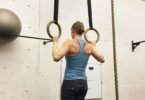Are you an athlete considering a vegetarian diet to enhance your performance? A well-planned athlete vegetarian diet can help you achieve peak performance while staying true to your dietary preferences.
Notable Vegetarian Athletes
A vegetarian diet is suitable not only for amateur athletes but also for professional athletes. A recent example is ultramarathon champion Scott Jurek, who follows a strict vegetarian diet.
Other notable athletes who have been vegetarians include Carl Lewis (track and field), Larry Bird (NBA), Martina Navratilova (tennis), and more.
How an Athlete Vegetarian Diet Supports Performance
According to the positions of dietetic associations in the US and Canada, a vegetarian diet appears to support all parameters that affect athletic performance effectively. However, there haven’t been enough studies to confirm this.
For maximum performance, the vegetarian athlete’s diet, like that of meat-eating athletes, should be rich in carbohydrates, and moderate in fat, with adequate amounts of protein, vitamins, minerals, and fluids.
A vegetarian diet can meet these requirements, primarily by consuming a variety of foods such as whole grains, pasta, legumes, fruits, vegetables, soy products, nuts, and eggs. For a protein boost, explore delicious vegan mushroom recipes, which are a hearty and flavorful addition to any meal.
Energy Needs
The daily calorie needs of each athlete depend on factors such as gender, age, type, intensity, and frequency of exercise, as well as extracurricular athletic activities. Vegetarian athletes, due to a diet rich in plant-based foods and consequently high in dietary fiber, may reach satiety more easily and often struggle to consume other necessary foods to meet their needs.
Tips for Easier Energy Consumption for a Vegetarian Athlete:
- Include more processed grains and nuts in your diet. Due to increased energy needs, you have the flexibility to consume larger quantities of food, including certain non-whole grain products that contain fewer dietary fibers. Pasta is a good choice because its carbohydrates are released gradually.
- Use moderate amounts of olive oil in your salads and cooking (1 tbsp of olive oil yields about 110 calories).
- Include fresh fruit juices in your daily diet, such as oranges, pomegranates, grapes, grapefruit, and others. They are calorie-rich and can contribute to better recovery after exercise.
- Choose dried fruits and nuts for snacks and intermediate meals.
- You can add cheese or tofu to your salads to increase their calorie and protein content.
Key Nutrients for an Athlete Vegetarian Diet
Carbohydrates
Carbohydrate intake is crucial in sports nutrition as it serves as the primary energy source for muscles and the brain. A vegetarian diet can meet carbohydrate needs through the consumption of whole grains, pasta, rice, legumes (e.g., peas, corn), and fruits (fresh and dried).
Protein
Protein needs of vegetarian athletes vary depending on whether the sport is strength-based or endurance-based. For strength-based sports (weightlifting, wrestling, basketball, water polo), vegetarian athletes require 1.3 to 1.8 grams of protein per kilogram of body weight. For vegetarian athletes in endurance sports (marathons), the needs are lower, ranging from 1.3 to 1.55 grams per kilogram of body weight. For example, an 80-kilogram marathon runner needs 104 to 124 grams of protein daily.
Fats
Consume fats in a range of 20-35% of total calories, limiting saturated and trans fats. A simple way to combine carbohydrates with fats is by adding small amounts of plant-based foods that contain fats, such as nuts, olives, olive oil, and soy products, to carbohydrate-rich foods.
Epilogue
In conclusion, vegetarian athletes can excel in their sports by adopting a carefully planned diet that meets their energy requirements. With a focus on consuming a variety of plant-based foods, including whole grains, legumes, fruits, and vegetables, as well as incorporating adequate protein, carbohydrates, and healthy fats, vegetarian athletes can fuel their bodies for optimal performance. Remember, consulting with a registered dietitian or nutritionist can further personalize your nutrition plan and ensure you are meeting your individual needs.
By Konstantinos Koutsikas, Dietitian-Nutritionist, M.Sc. for medNutrition.gr
References: Craig W.J., Mangels A.R.: Position of the American Dietetic Association: Vegetarian diets. J. Am. Diet. Assoc., 2009, 109, 1266-1282. Vegetarian Nutrition: Α Dietetic Practice Group of the American Dietetic Association. Sports Nutrition for Vegetarians. (Accessed 20 June 2013). Available from: http://vegetariannutrition.net/docs/Sports-Vegetarian-Nutrition.pdf







